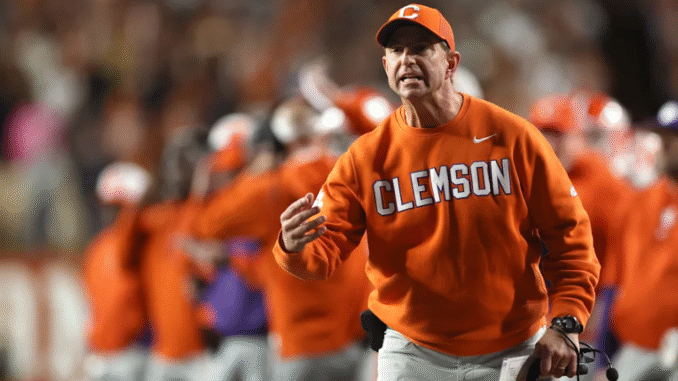
The current era of college football, dubbed the NIL and Transfer Portal era, has transformed the sport’s landscape. Athletes can now earn financial compensation through Name, Image, and Likeness (NIL) deals, and the transfer portal allows players to switch programs annually with ease. Most powerhouse programs have embraced these changes, leveraging their resources to attract top talent. However, Clemson head coach Dabo Swinney has been a notable outlier, resisting the transfer portal’s influence. Until recently, Swinney sparingly utilized the portal, adding only two veteran backup quarterbacks before this year. His recent moves, however, demonstrate he can compete in the transfer market when he chooses, dispelling notions that his reluctance stemmed from inability.
**Dabo Swinney Advocates for Transfer Portal Regulations**
On the College GameDay podcast, Swinney called for clearer transfer portal rules to address the current “chaos” in college football. He criticized the lack of regulation, particularly around agents who shop players to schools before they enter the portal, and the absence of a salary cap, which allows wealthier programs to dominate.
> “I think we’re coming out of a period of complete chaos… there’s no cap, schools can’t handle things directly, it comes from outside entities. The agent process is not regulated… I do think we’re about to enter a much more structured environment… it might take a year, but I think it’s going to create some markets… with transparency, an actual cap. The best thing about the settlement is it keeps college football scholastic.”
> — Dabo Swinney
Swinney’s push for reform targets the unregulated nature of the transfer portal and NIL deals. The lack of oversight has led to problematic situations, such as unqualified agents brokering deals and unreliable third parties failing to deliver promised funds. High-profile cases, like Matthew Sluka sitting out at UNLV or Jaden Rashada suing Florida and coach Billy Napier, highlight the instability caused by these issues.
The proposed House Settlement could bring much-needed structure. It would introduce regulatory oversight to ensure NIL deals are legitimate and allow schools to pay players directly through revenue sharing, effectively creating a salary cap. Swinney envisions this system balancing talent distribution by preventing wealthier programs from monopolizing top players.
> “Some years you might have a fourth-year quarterback you’ve invested in, or senior tackles and a great wideout or corner, and then the next year, those guys move on. So there’s money freed up, giving you flexibility within your cap… You’ve got to retain talent, acquire talent. Just like the NFL, you pay premium players at premium positions. If you pay the wrong guys, you’re in trouble.”
> — Dabo Swinney
Swinney’s vision aligns with a future where a salary cap fosters competitive balance, preventing a handful of elite programs from dominating through financial might. While his calls for change are just that for now, the House Settlement’s potential implementation could reshape college football into a fairer, more structured landscape.

Leave a Reply